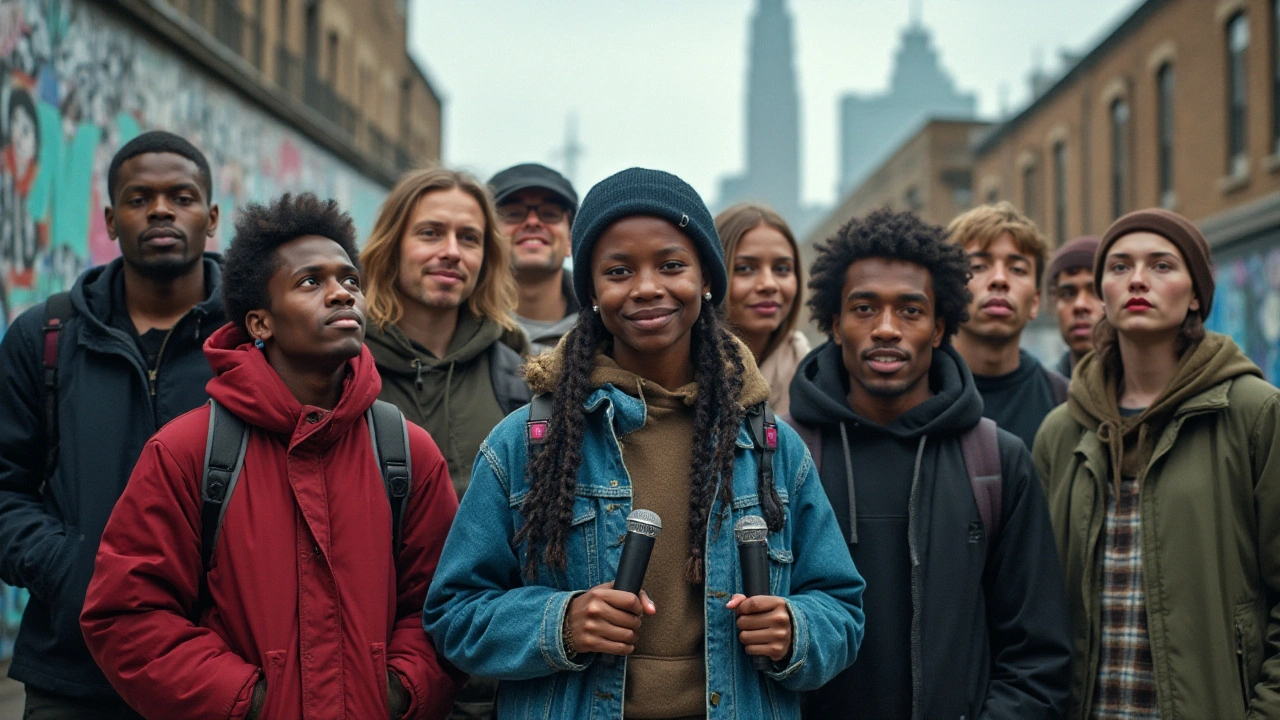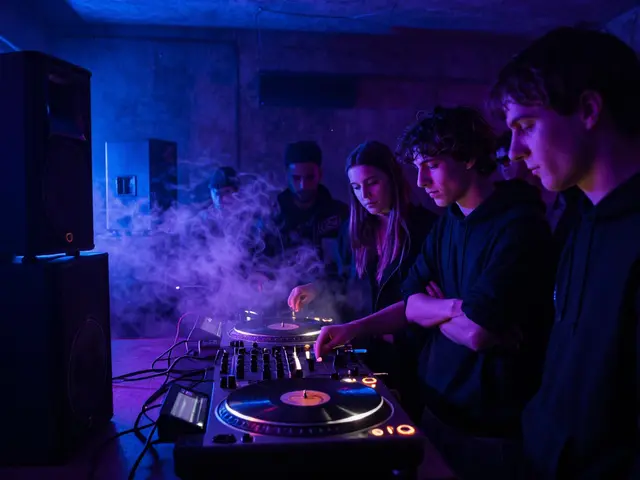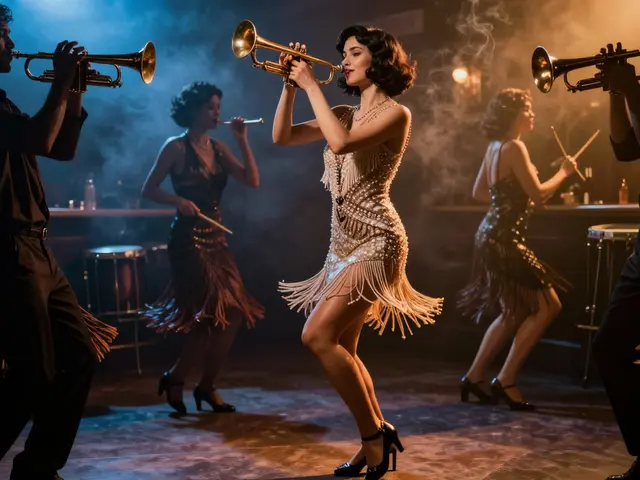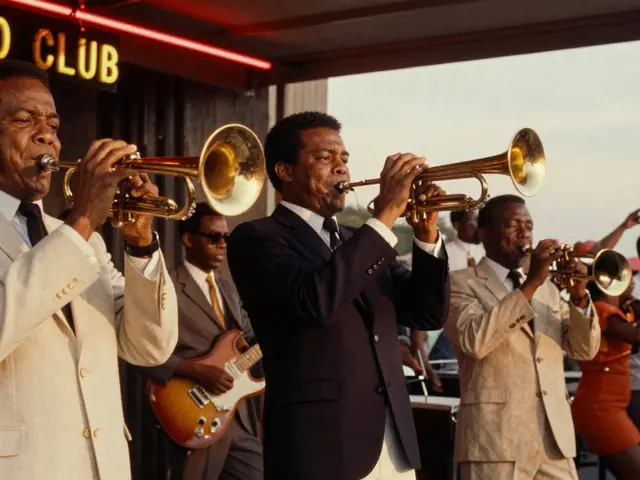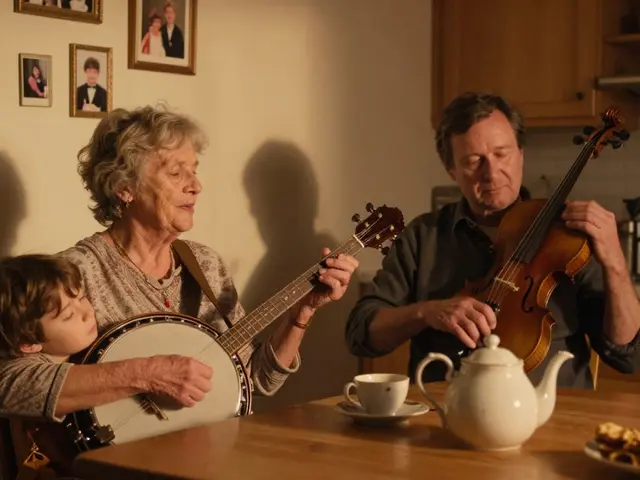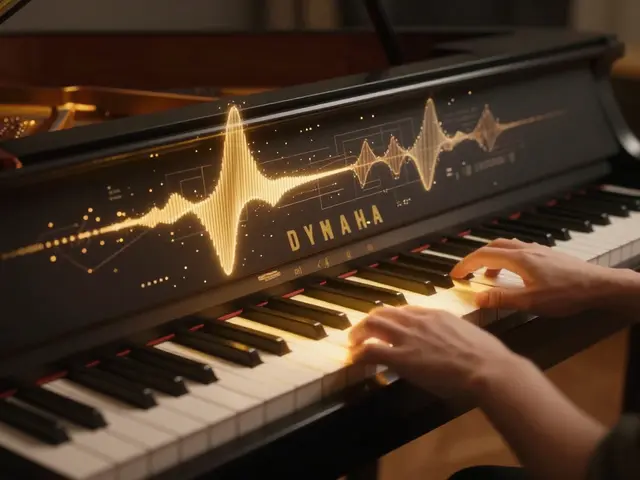Hip hop music, since its inception in the streets of the Bronx, has always been a channel for expression. Born from the struggles and dreams of youth in urban environments, hip hop is much more than rhythm and rhyme. It provides a voice to those often unheard, crafting tales that expose societal issues and ignite dialogue.
From its roots, hip hop had the uncanny ability to speak truth to power. Its lyrics reflect real-world issues – inequality, poverty, and the fight for justice. Over the decades, it has become a beacon for political activism, merging music and message to move hearts and minds.
Today, artists continue to use hip hop as a lens to examine societal structures. They inspire change by addressing topics that are often sidelined, urging fans and listeners not just to dance but to take action. The beats may compel feet to move, but the words aim to inspire communities to mobilize.
- The Origins of Political Expression in Hip Hop
- Hip Hop’s Influence on Social Movements
- Notable Artists and Their Political Impact
- The Future of Political Expression in Hip Hop
The Origins of Political Expression in Hip Hop
In the late 1970s, a new wave of sound and energy emerged from the Bronx in New York City. This movement, which we now know as hip hop, found its roots amid the vibrant but challenging life of urban street culture. At its core, hip hop was about storytelling. DJs and MCs would gather at block parties, spinning records to create infectious beats that instantly electrified the crowd. But it was the MCs, with their sharp, rhythmic poetry, who used words as a powerful tool for expressing underlying social issues. This communication style soon evolved to become a formidable avenue for political expression.
The early pioneers of hip hop, like Grandmaster Flash and the Furious Five, were not just creating catchy tunes; they were providing raw commentary on societal woes. Songs like "The Message" told the stories of troublesome neighborhoods, joblessness, and declining infrastructure, reflecting the daily reality of many African American and Latino communities. Such content struck a chord with listeners, validating their struggles and frustrations while raising awareness on a larger stage. Just as the civil rights movement leveraged music for solidarity, hip hop emerged as the next great vehicle for transformation.
During the 80s, hip hop continued to expand its political narrative. Groups like Public Enemy took center stage, delivering messages that resonated powerfully within a racially charged America. Chuck D, the group's lead rapper, famously described hip hop as "CNN for black people," highlighting its role in disseminating crucial, unfiltered information within marginalized communities. Their song "Fight the Power" became an anthem for challenging systemic oppression, showcasing hip hop's ability to mobilize and inspire change through music.
In addition to the music, the culture of hip hop itself began to reflect political themes through its various elements: graffiti, breakdancing, and fashion. Each aspect was a form of rebellion, a metaphorical fist raised against the mainstream. Graffiti artists transformed urban landscapes into vibrant canvases, their murals depicting stories of resistance and hope. In these ways, hip hop became a cultural movement that went beyond music alone, fostering unity and pride among those who had been historically disenfranchised.
The power of hip hop as a platform for political expression laid the groundwork for generations of artists who followed. By incorporating social commentary into their art, early hip hop artists set a precedent for creative activism that still resonates today. Hip hop's early founders, through their ingenuity and unfiltered storytelling, solidified the genre not just as a form of entertainment, but as a beacon for social change, continually inspiring waves of action and awareness across the globe.
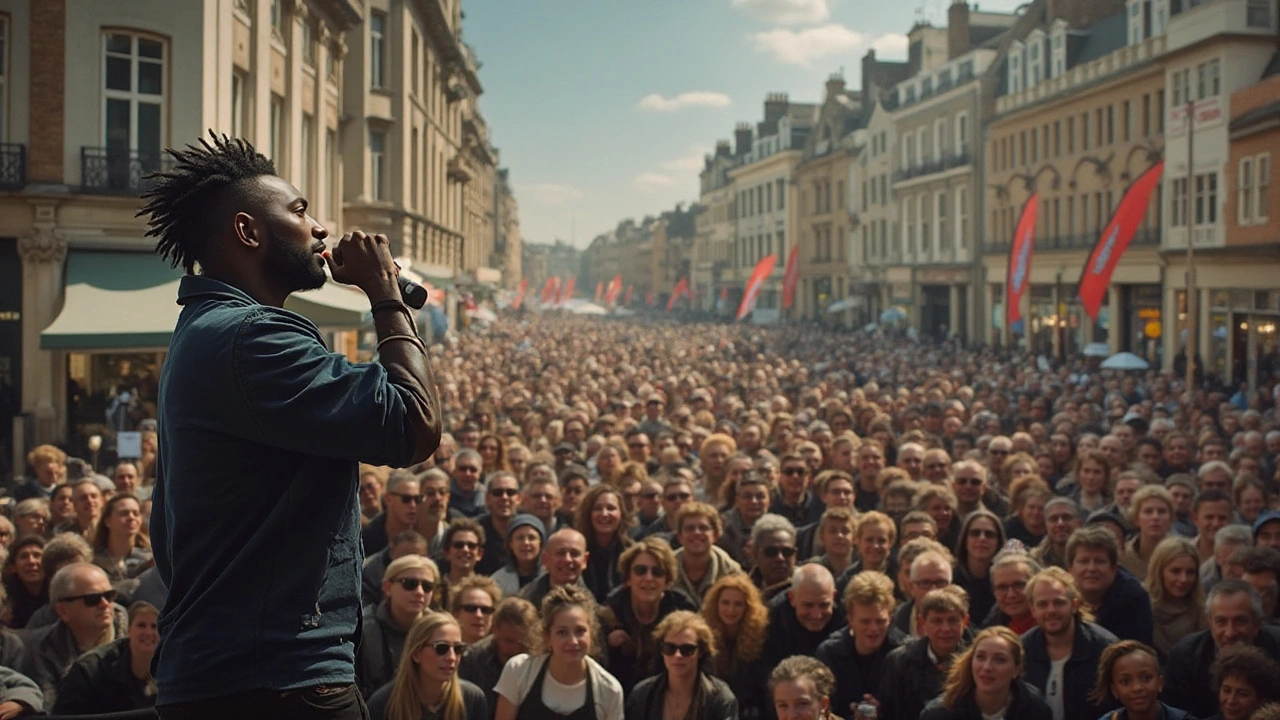
Hip Hop’s Influence on Social Movements
Hip hop has consistently been at the forefront of social change, acting as a catalyst for movements that seek to address disparities and injustices. It is a genre that often reflects the realities of marginalized communities, documenting their daily struggles and aspirations from a raw, unfiltered lens. From the Civil Rights movement to more contemporary pushes for racial equality, hip hop has been more than just a soundtrack; it has been a driving force, motivating change and providing an influential platform for activism.
The genre's ability to resonate with the masses owes much to the powerful storytelling embedded in its lyrics. Iconic tracks from artists like Public Enemy, N.W.A., and Kendrick Lamar encapsulate the struggles against systemic oppression, police brutality, and racial discrimination. Songs like "Fight the Power" and "Alright" have become anthems, their messages aligning with broader movements and protests, echoing cries for justice around the world. The music encourages people to not only listen but engage and act, bridging the gaps between art and activism.
It’s critical to acknowledge hip hop’s role in forming connections and coalitions. In recent years, the Black Lives Matter movement has seen artists use their platforms to foster awareness and direct action. They help channel anger and frustration into a unified call for change, showing that hip hop is not just a genre but a significant part of the fabric of sociopolitical activism. Legendary artist Tupac Shakur once highlighted this impact, stating,
"I’m not saying I’m going to change the world, but I guarantee that I will spark the brain that will change the world."His words continue to inspire and resonate within the hip hop community, further fueling its association with political expression.
The influence of hip hop is often mirrored by the visual components accompanying the music. Music videos and performances are potent forms of protest, bringing the invisible struggles into plain sight. They serve as visual testimonies, offering a glimpse into the lives of those speaking up against issues like economic inequality and cultural appropriation. This powerful fusion of audio and visual storytelling ensures that messages are not only heard but felt, resonating with people from all walks of life and emboldening them to join the cause.
As hip hop continues to evolve, its reach extends beyond the borders of the United States, impacting global social movements. Artists worldwide draw inspiration from its core principles, adapting its tenets to reflect their distinct sociopolitical landscapes. East African and Latin American hip hop artists, for instance, use the genre to highlight their own socio-economic struggles, illustrating how hip hop's influence extends across nations and cultures. Hip hop has proven that it can transcend language and borders, effectively becoming a universal language of resistance and reform.
These efforts are not merely symbolic; they translate into tangible results. Hip hop has had significant impacts in mobilizing communities and fostering youth engagement. It encourages critical thinking and awareness among young listeners, empowering them with knowledge and the courage to demand change. Supported by an ever-evolving digital landscape, hip hop’s messages spread far and wide, reaching audiences through social media and streaming platforms, multiplying its influence exponentially.
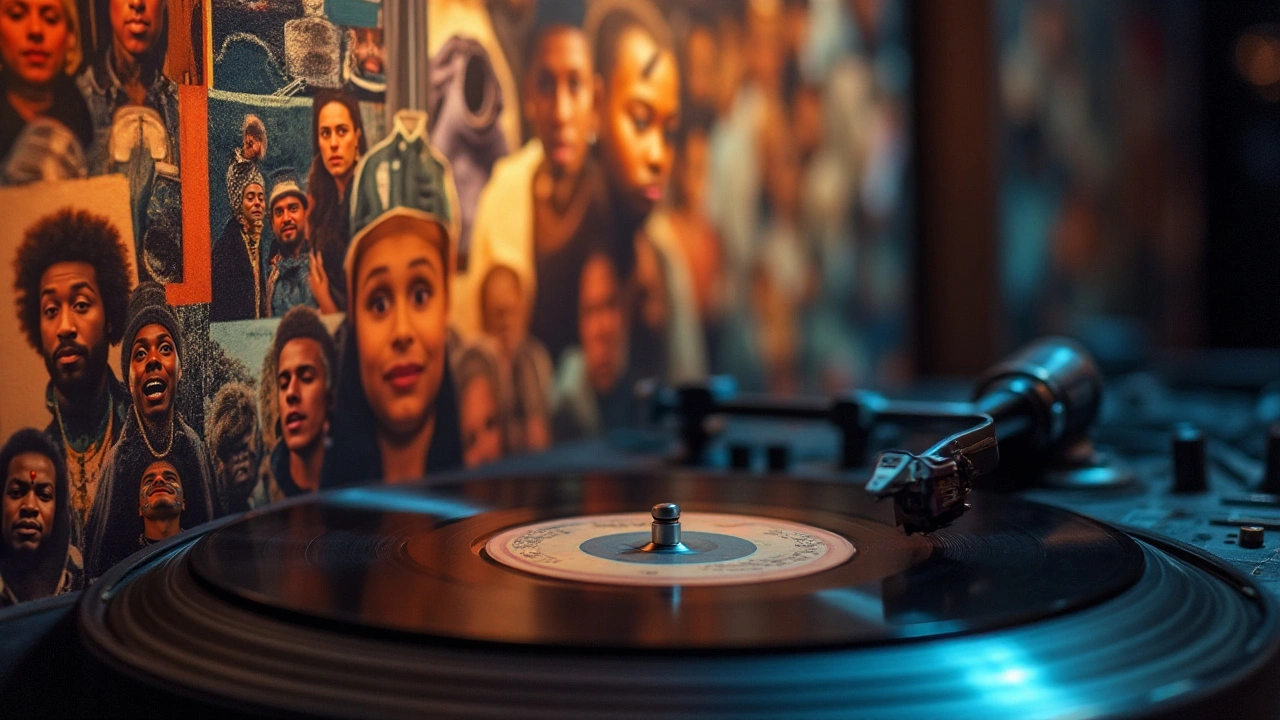
Notable Artists and Their Political Impact
Hip hop has long been a vehicle for political expression, and some artists have especially embraced this mantle, wielding their influence to challenge injustices and advocate for change. A key figure who epitomizes this is Chuck D of the iconic group Public Enemy. With songs like 'Fight the Power,' Public Enemy captured the frustrations of the Black community in America. Their music became anthems of resistance, with Chuck D referring to hip hop as the 'Black CNN,' reporting raw truths that mainstream media often glossed over. He stated, 'Rap is black America's TV station. It gives a whole perspective of what existence is like through this generation's eyes.' Their work was a clarion call to action, addressing issues of racial profiling, economic disparities, and police brutality.
Another pivotal artist is Kendrick Lamar, revered not just for his lyrical prowess but also for his ability to weave complex narratives that speak on the American experience for people of color. His album 'To Pimp a Butterfly' was celebrated for its deep social and political commentary. The track 'Alright,' for instance, became synonymous with the 2015 Black Lives Matter marches, chanting its hopeful yet defiant refrain: 'We gon' be alright.' Kendrick's storytelling is a mosaic of personal and communal histories, examining themes of systemic oppression, identity, and resilience. At times, his concerts feel less like entertainment and more like electrifying rallies that re-ignite the spirit of resistance among attendees.
Then there's the inimitable voice of Lauryn Hill, whose debut solo album 'The Miseducation of Lauryn Hill' transcended music to become a cultural manifesto. Hill's hybrid style, blending hip hop with soul and reggae, allows her to discuss themes ranging from the perils of fame to institutional failings in education. Her track 'Doo Wop (That Thing)' encourages empowerment and self-respect, while 'Everything Is Everything' critiques societal pressures and systemic barriers faced by marginalized communities. Hill's approach is introspective and philosophical, challenging audiences to reflect on broader societal issues through a personal lens.
Beyond individual artists, collective movements within the hip hop community have also spearheaded political activism. For example, the 'Stop the Violence Movement,' formed in response to the rise of violent crime in the late 1980s, saw artists like KRS-One bring awareness through music collaboration. By infusing their tracks with vital messages and uniting a spectrum of voices, they demonstrated the genre's power to not only entertain but catalyze discussion and action.
In a landscape where voices often go unheard, these artists and many others continue to use their platforms to amplify those cries. Their music doesn't merely mirror society; it challenges it, shifting perceptions and advocating for tangible change. While they come from diverse backgrounds and experiences, their shared commitment to using hip hop as a force for good unites them in their mission to inform and inspire. Through their art, they remind us of music's profound potential to be a catalyst for political transformation and social evolution.
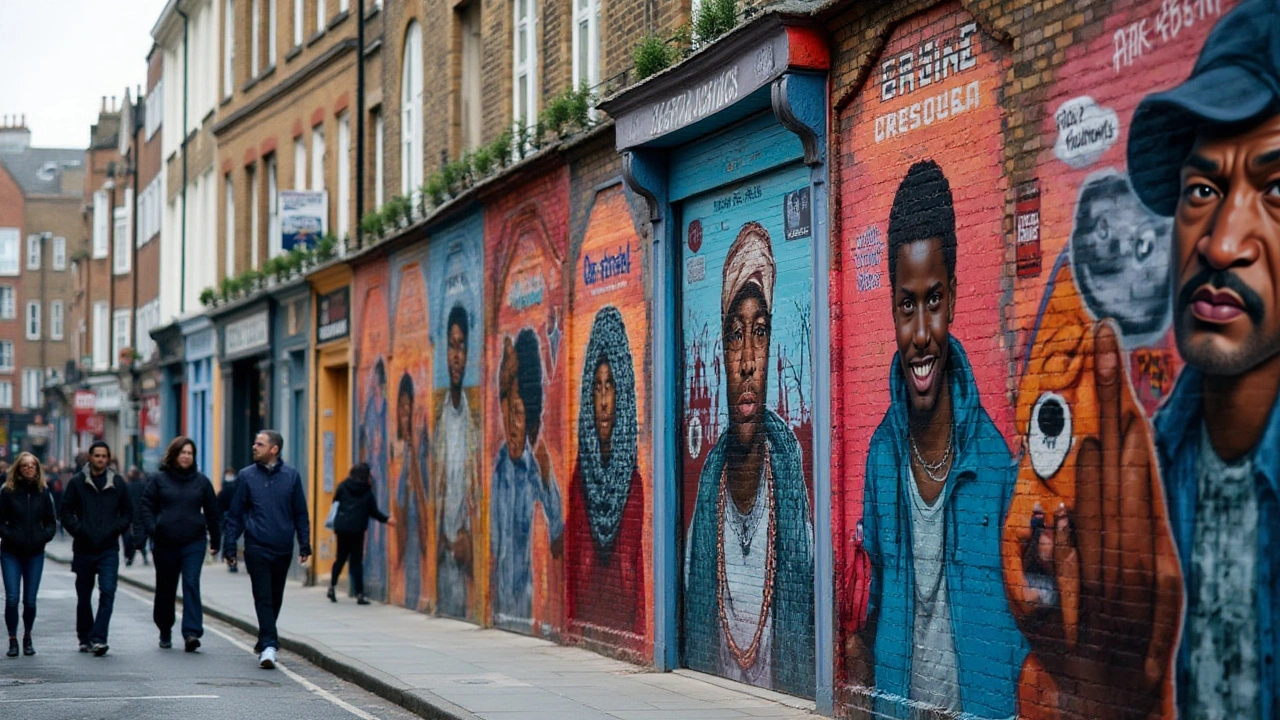
The Future of Political Expression in Hip Hop
As we cast our eyes toward the horizon, it becomes clear that hip hop will continue to evolve as an influential force in political landscapes. The genre's raw and authentic nature not only captures the essence of societal struggles but also serves as a mirror reflecting the rapidly changing socio-political environment. With the advent of digital platforms, artists who once relied solely on local communities can now amplify their voices globally, using music as a tool for instantaneous political commentary. This connectivity broadens the potential impact of hip hop, as issues once confined to specific geographies are shared worldwide, facilitating a shared understanding and communal calls to action. Through streaming services and social media, hip hop artists can directly engage with their audiences, fostering immediate responses and real-time discussions that transcend traditional political platforms.
Looking to the future, the next generation of hip hop artists is poised to leverage technology's potential to create more interactive experiences, perhaps through virtual reality concerts or blockchain-backed music ownership that enhances creator accountability. This tech-savvy approach will enable artists not only to produce compelling music but also to bring fans into their creative process, further strengthening the bond between artist and listener. In this dynamic landscape, hip hop remains uniquely positioned to adapt and thrive, maintaining its edge as a catalyst for social and political change.
One can observe the increasing influence of hip hop in contemporary politics through global examples. In countries where free speech is restricted, hip hop often becomes a voice of resilience and hope. Consider regions where state censorship has tightened—a rapper's output becomes a symbol of defiance, encouraging listeners to think critically about their circumstances. And who can forget the words of the legendary Dr. Cornel West, who once said,
"Hip hop is grounded in marginality and has the voice of eloquent rage."Indeed, the genre's intrinsic power stands as a testament to its enduring ability to challenge the status quo and welcome new narratives that defy convention.
Moreover, the future of political expression in hip hop will likely see collaborations with non-musical entities, such as advocacy groups and international organizations. These partnerships will draw on the storytelling nature of hip hop to address global issues like climate change, human rights, and social justice, giving birth to movements that call upon shared cultural passions and collective resolve. The intersection of art and activism is fertile ground for change, with hip hop holding a prominent place at the crossroads, serving as a borderless ambassador for collaboration and innovation.
In summary, as society shifts towards a more connected and conscious future, hip hop is slated to be at the forefront of artistic political expression. It will continue to be an authentic voice championing the causes of disenfranchised communities while simultaneously expanding its horizon of influence. As listeners, we play an essential role in this narrative, not just as audience members but as active participants in dialogue and change, inspired and led by potent verses woven into the fabric of beats. Undoubtedly, hip hop's future is promising, driven by a shared commitment to truth and transformation.

